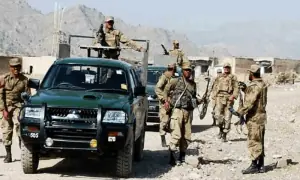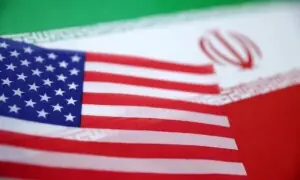UN says 34 million Afghans in poverty under Taliban rule
4 min readThe number of Afghans in poverty nearly doubled to 34 million as the nation was racked by the collapse of the US-backed government and the Taliban takeover, the United Nations said Tuesday.
Vast foreign subsidies were halted and aid programmes dramatically cut back after the US-backed republic fell in 2021 as many countries refused to deal with the Taliban authorities in Kabul.
Those NGOs still providing vital help were dealt a further blow in December last year by a Taliban government order barring Afghan women from working for them.
The curb was extended this month to the UN’s Afghan women employees and the organisation said it faces an “appalling choice” over whether to continue its aid schemes.
The United Nations Development Programme (UNDP) released on Tuesday a stark new assessment of 2022 data estimating 34 million Afghans were living below the poverty line.
The figure is a staggering increase of 15 million on 2020, the last full year of rule by the Western-backed government that crumbled in a matter of weeks the following summer.
There is no contemporary census data for Afghanistan but the UN uses a population estimate of 40 million, meaning 85 percent of the nation is projected to be in poverty.
“Some have been compelled to sell their homes, land, or assets that generate income,” the UNDP report said.
“Others have resorted to the distressing practice of commodifying their own family members, turning children into labourers and young daughters into brides.”
The UN airlifts vast sums of US dollars into Afghanistan to pay staff and operating costs – cash injections that have also been vital in shoring up the nation’s faltering economy.
‘Into the abyss’
About $1.8 billion was imported this way between December 2021 and January 2023, according to the UN’s mission in Afghanistan.
It warned at the start of the year “if the volume of assistance that the UN is able to provide diminishes the amount of cash shipped will be reduced”.
That means if the UN winnows down its work owing to the Taliban government curbs, it will have the double effect of reducing aid and cutting a crucial economic lifeline for desperate Afghans.
The UN has also warned that restrictions may turn off the aid tap at the source, with donors wary of committing cash to projects that cannot be implemented.
The UN’s 2023 Afghanistan appeal has thus far raised only five percent of its $4.6 billion goal.
“If foreign aid is reduced this year, Afghanistan may fall from the cliff edge into the abyss,” the UNDP resident representative in Afghanistan, Abdallah Al Dardari, said in a statement.
Many organisations suspended their operations in protest against the December ban on NGOs employing Afghan women.
An exemption was granted to those working in the health sector following days of wrangling, but the UNDP said 150 NGOs and aid agencies “have suspended all or part of their work”.
Aid officials say they need women workers to help identify and support Afghan women beneficiaries across the country.
“The ban has very negative consequences,” Dardari told reporters during the release of the UNDP report in Kabul.
“If we don’t have those female colleagues, who will knock on the door and provide support and talk to Afghan women in their homes?”
Negative impact
The UN has told all Afghan citizens, both men and women, to stay away from its offices since Taliban authorities banned Afghan female UN staff from work two weeks ago.
“For now they are working from home and they will continue to be UN staff and they will continue to be paid,” Dardari said.
The order is the latest in a slew of creeping restrictions on the freedoms of women since 2021 that have seen teenage girls barred from schools and women pushed out of many government jobs.
In a wide-ranging public statement ahead of Eidul Fitr, Taliban supreme leader Hibatullah Akhundzada said “the development of Afghanistan is the responsibility of Afghans”.
“We should not rely on others,” he said.
Qatar, traditionally a major donor which has pressed the Taliban authorities to end the ban on women workers, said it sent on Tuesday its first humanitarian flight to Afghanistan in 10 months carrying food, medical supplies and books.
For the latest news, follow us on Twitter @Aaj_Urdu. We are also on Facebook, Instagram and YouTube.



























Comments are closed on this story.